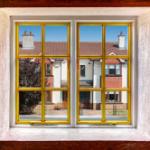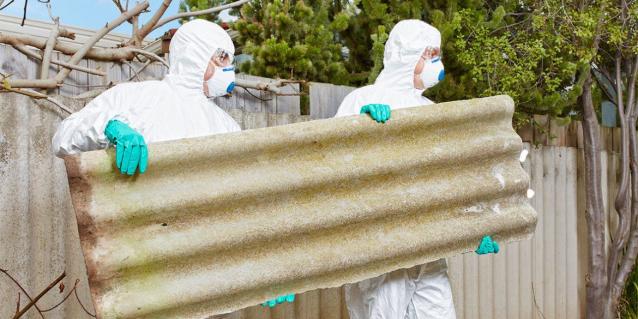
When and Why You Should Consider Double Glazing
By HOUSPECT Building and Pest Inspections|September 27, 2017
When you think of energy efficiency and comfort, do the type of windows in your home come to mind? If not, you may be overlooking a crucial factor of energy conservation. For many Australian homeowners, the appeal of double glazing lies in its increased insulation value. Still, there’s more to a double glazed window than just lower energy bills. What you don’t know may surprise you, so if you’re planning a construction or remodeling project, it pays to weigh the pros and cons of double glazing.
Double Glazing Explained
Where single glazed windows only contain one layer of glass, double glazed models are comprised of two separate glass panes. They also feature a layer of inert gas, and the whole structure can provide an airtight seal which offers almost double the insulation power of other window options.
The weakest points in your home, in terms of insulation and energy efficiency, are the windows. For this reason, double glazing is a popular choice among homeowners. What many don’t realize, though, is that creating the effective insulation provided by properly installed double glazed windows entails a bit more than just changing out a few pieces of glass.
Benefits of Double Glazing
The energy benefits aside, there’s still plenty to love about double glazed windows. In addition to insulating against temperature changes inside your home, double glazing also provides a much higher degree of sound muffling to cut noise pollution inside your home. For houses on busy thoroughfares or in highly populated areas, the reduction in outside ambient noise can be quite attractive.
Drawbacks to Consider
The primary drawback to double glazing is the initial cost. Though the windows can help to pay for themselves through substantially lowered energy bills, you should still expect to shell out quite a bit of money for them at the outset. Unless they’re part of an overall efficiency-boosting plan, double glazed windows can have limited effectiveness as a whole.
Another expense associated with the installation of double glazed windows lies in the need to completely replace the full window. Retrofitted glass will not yield the same level of insulation or noise muffling, so it’s not recommended. Accidental window breakages can’t be repaired, so the affected window will have to be completely replaced.
Your home renovation or new home construction project comes with a wide array of important decisions to make, not least of which is the type of windows you ultimately install. While you’re busy working to make informed decisions about building materials, make sure the rest of your project is moving along properly. Remember, you will be responsible for fixing defects or addressing faults soon after practical completion, even if they’re the fault of a builder. This is where a professional building inspection company can make all the difference. A neutral, experienced building inspector can help you to avoid long-term problems stemming from poor work by providing stage construction inspections. Evaluating your home and the work being done at several crucial points in the project, a professional inspector will catch errors and areas of concern before they become serious issues.
Double Glazing Explained
Where single glazed windows only contain one layer of glass, double glazed models are comprised of two separate glass panes. They also feature a layer of inert gas, and the whole structure can provide an airtight seal which offers almost double the insulation power of other window options.
The weakest points in your home, in terms of insulation and energy efficiency, are the windows. For this reason, double glazing is a popular choice among homeowners. What many don’t realize, though, is that creating the effective insulation provided by properly installed double glazed windows entails a bit more than just changing out a few pieces of glass.
Benefits of Double Glazing
The energy benefits aside, there’s still plenty to love about double glazed windows. In addition to insulating against temperature changes inside your home, double glazing also provides a much higher degree of sound muffling to cut noise pollution inside your home. For houses on busy thoroughfares or in highly populated areas, the reduction in outside ambient noise can be quite attractive.
Drawbacks to Consider
The primary drawback to double glazing is the initial cost. Though the windows can help to pay for themselves through substantially lowered energy bills, you should still expect to shell out quite a bit of money for them at the outset. Unless they’re part of an overall efficiency-boosting plan, double glazed windows can have limited effectiveness as a whole.
Another expense associated with the installation of double glazed windows lies in the need to completely replace the full window. Retrofitted glass will not yield the same level of insulation or noise muffling, so it’s not recommended. Accidental window breakages can’t be repaired, so the affected window will have to be completely replaced.
Your home renovation or new home construction project comes with a wide array of important decisions to make, not least of which is the type of windows you ultimately install. While you’re busy working to make informed decisions about building materials, make sure the rest of your project is moving along properly. Remember, you will be responsible for fixing defects or addressing faults soon after practical completion, even if they’re the fault of a builder. This is where a professional building inspection company can make all the difference. A neutral, experienced building inspector can help you to avoid long-term problems stemming from poor work by providing stage construction inspections. Evaluating your home and the work being done at several crucial points in the project, a professional inspector will catch errors and areas of concern before they become serious issues.



